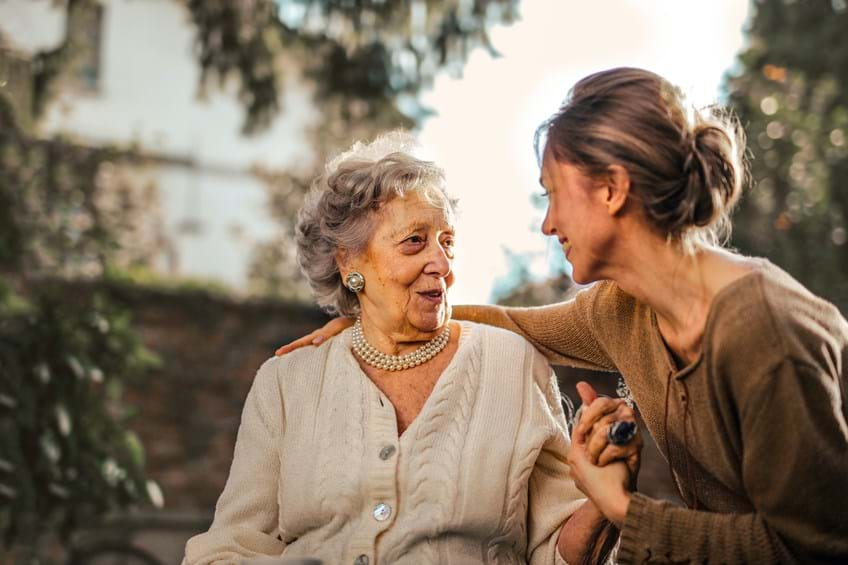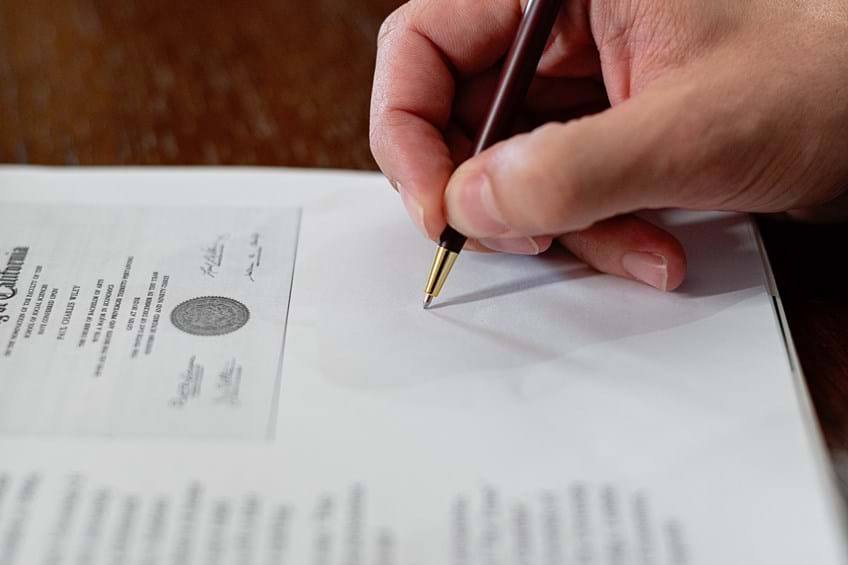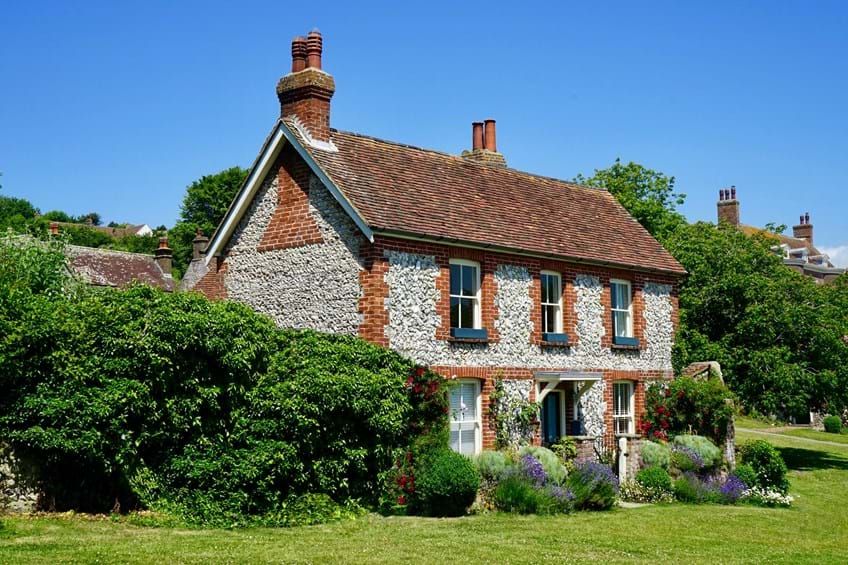Wills Probate and Trusts

Changes to Lasting Powers of Attorney
The system of Lasting Powers of Attorney is due to be significantly overhauled following The Powers of Attorney Act 2023 which received Royal Assent on 18th September 2023.
The aim of the changes is to modernise the process of making a Lasting Power of Attorney and to make Lasting Powers of Attorney more digital (although it is stated that there will still be a paper process for those unable to use the digital system).
Whilst many people may welcome a more digital system, for many, digital processes are daunting and many people are uneasy about our lives becoming more and more digital. Indeed, for some it is simply not possible since they do not have internet access or are unable to use the internet confidently.
Inevitably, when any system or process is changed, there are often “teething problems”. Lasting Powers of Attorney are sent to the Office of the Public Guardian to be registered and it is possible that they will suffer such “teething problems” whilst they settle into the new system.
There will be further direction from the government as to the implementation of the Act and a date for the changes will be set. In the meantime, if you are considering making Lasting Powers of Attorney, you may wish to speak with one of our lawyers before the changes are implemented so that your Powers of Attorney can be created under the current system.
To discuss Lasting Powers of Attorney, please contact one of our lawyers in the Wills, Lasting Powers of Attorney and Probate Department:-
Jamie Dobbs- jamie.dobbs@maplessolicitors.com
Jane Mawer- jane.mawer@maplessolicitors.com
Faye Blair- faye.blair@maplessolcitors.com
Or telephone the office 01775 722261 and ask to speak with one of the team.

Cryptoassets in Estates
Executors are facing new challenges when it comes to the administration of a loved ones estate in the form of cryptoassets and digital currency.
There is estimated to be around 130 million users of bitcoin alone with the crypto market now being
worth around $1 trillion in value. Unlike a standard bank account, access to such assets requires online log in details, access to a particular App on a deceased’s phone or their ‘virtual wallet’ and it is unusual for there to be a bereavement team to contact for assistance. As the asset exists purely virtually the Courts have had to establish a whole new form of identity for these assets outside of the term ‘property’ in English Law.
The starting point to deal with a deceased’s digital and crypto asset is to look at what devices they
had. Crypto and digital assets can be stored on hard-drives, laptops, tablets, smart phones and
hardware wallets. If the Personal Representatives are then able to locate these cryptoassets they
will need the key entries to be able to access them. In a digital wallet the account holder of the
cryptoassets will have a public and private key to be able to access and conduct any transactions.
Essentially a public key is like an account number which is used to identify the user and the private
key is like a pin number which only the owner will have access to. It is therefore advised to see if the deceased stored these keys anywhere such as in any paper trails or digital files. It may not always be that simple to find these passcodes/keys however if you are able to locate them it is advised that an expert accesses these accounts as Personal Representatives may not have the knowledge to do so and may not be covered for any losses to the estate.
It may also be the case that the deceased owned cryptoassets through third party intermediaries
who safeguard those assets on their behalf. A further complication that must be overcome.
The value of a cryptoasset does count towards the deceased’s estate for inheritance tax purposes
and so it is important to locate these assets to avoid making any false representations to the
revenue.
Once access has been obtained, the cryptoasset can be transferred to another wallet, for example to a beneficiary of the estate or to the executor, or it can be converted to currency to be cashed out.
Bitcoin reports that more than 4 billion bitcoins have not been located or accessed when dealing
with a deceased’s estate. Without any key information the likelihood is that these cryptoassets are inaccessible and lost forever.
Maples Solicitors are now encouraging clients to prepare what is referred to as a ‘digital will’. This is a document setting out exactly what crypto assets an individual has and all details in relation to access to those assets included the virtual keys. This digital will also include passwords to mobile telephones, email passwords and all other potential online and security information that the
executors will need to access virtual currency or online only accounts belonging to the deceased.
The digital will is safely stored with the original will and can be updated at any time without need to update the original will. It is hoped that practical steps such as these will assist Executors in the future.
If you have any queries or concerns in relation to cryptocurrency, the administration of an estate or
your own will then please contact one of the members of our Private Client Department:-
Jamie Dobbs- jamie.dobbs@maplessolicitors.com
Jane Mawer- jane.mawer@maplessolicitors.com
Faye Blair- faye.blair@maplessolcitors.com
Or telephone the office 01775 722261 and ask to speak with one of the team.

Inheritance Tax & the new Residence Nil Rate Band
Paying Inheritance Tax is a common concern for those who are considering estate planning and preparing their Will. It would be hard to find anyone who would relish in the idea of their estate paying tax after they pass away on assets that have already attracted tax during their lifetime. Recent developments in inheritance tax legislation have therefore been eagerly awaited especially in response to political promises of a £1million pound inheritance tax exempt allowance.
The reality is not as straightforward as had been hoped and unfortunately will not be beneficial for everyone. It is therefore important to know how you are personally affected by the change and what you should do next to ensure that your inheritance tax burden is minimised as much as is possible.
Each individual has what is known as a ‘nil rate band’ of £325,000 which does not attract inheritance tax. There are certain reliefs available for businesses and agricultural property however, generally speaking, assets over and above this threshold will attract inheritance tax after death at a rate of 40%.
In the case of married couples or those in a civil partnership, if the first to pass away leaves everything to the other, it is possible for the surviving spouse to claim the unused nil rate band and so effectively ‘double-up’ to a £650,000 nil rate band. This is known as the ‘transferable nil rate band’. There is no transferable nil rate band between partners or cohabitees regardless of the length of the relationship. If you are in a long term relationship, whether or not your individual assets exceed £325,000, it would be wise to seek advice regarding your Wills and estate planning options that may be available to you.
For deaths that occur from the 6th April 2017 the estates of those that qualify will also be able to claim an additional nil rate band known as the ‘residence nil rate band’. For the current tax year 2017/2018 this additional allowance is £100,000 per person. This is set to rise annually up to 2020/2021 when it will reach £175,000 per person.
In the same way as the original nil rate band, it is transferable between spouses and civil partners making it possible to have an additional £350,000 of residence nil rate band to add to the original £650,000 mentioned above which brings a married couple to the promised £1million pound nil rate band to be exempt from inheritance tax. Again please note that this only applies to married couples and those in a civil partnership and so individuals who are not married will not be able to reach a £1million pound exemption.
As previously stated not everyone will qualify for the additional residence nil rate band. To qualify you must have a residence or an interest in a residence that is being ‘closely inherited’. Closely inherited means that you are passing that residence to a lineal descendent meaning to your child or grandchild. Child has been widely defined and includes step-children, foster children, adopted children, natural children who have been adopted by a third party and also the spouse of a child if that child has predeceased you (your son or daughter-in-law).
No other family connection will suffice as a lineal descendent. If you do not have children or grandchildren then it will not be possible to claim for the additional residence nil rate band.
It is important to note that if you have left your estate as a whole between your children, grandchildren and other beneficiaries such as nieces, nephews and/or charitable organisations this will prevent your estate from being able to claim for the residence nil rate band. The whole property must be inherited by a lineal descendent and it is not enough that they are one of the beneficiaries. If you have a Will that leaves your estate between several beneficiaries who are not your lineal descendants, it would be advisable to review your Will and ensure that it is the most tax efficient Will now available to you.
The lineal descendent also has to inherit the property outright or at least have an immediate interest in the property after death. This means that if the property falls into a discretionary trust, even those that are for the benefit of the children, the additional residence nil rate band will not be available to the estate. There are certain types of settlement that would still allow your estate to qualify for the residence nil rate band. If you presently have a trust in your Will and have assets over and above the £325,000 threshold then do please seek advice as to whether your Will remains the most tax efficient way forward in light of the new legislation.
To qualify for the full residential nil rate band your net estate also has to be less than £2million pounds in total. If you have an estate worth more than two million pounds then you lose £1 for every £2 that you are over that threshold. In this part of Lincolnshire it is not too common for an estate to be worth more than this threshold but for those with property in London it is certainly a clear issue and another possible bar for being able to claim the additional relief.
The new legislation prompted many to worry about what would happen if they sold their large family home and downsized or, sold their home altogether and moved into residential care or other accommodation. Complex ‘downsizing’ legislation has therefore been produced to calculate a percentage of the residence nil rate band available on death where a downsizing has occurred or where a property has been sold. This is easier to look at on a case by case basis rather than within the context of this article however a simple example can be seen below:
‘Mabel, who is a widow, sells her bungalow for £250,000 in 2020 and moves into residential care. Presuming that she left her estate to her lineal descendants, as the value exceeded the residence nil rate band available, she would be treated as having an entitlement of 100% of the available residence nil rate band on death being the full £175,000.’
Essentially if you have owned a property and treated it as your residence at any point prior to death then it will be possible for the representatives of your estate to seek advice regarding the downsizing provisions and see if it is still possible to claim for the residence nil rate band for your estate. It will also be possible for them to seek advice concerning a previously owned property if you are now in a property of a lesser value however it will never be possible to claim for more than the maximum residence nil rate band available in any given tax year regardless of the value of the property.
If you have an estate worth more than £325,000 and especially if you own a residence within your estate, it would be wise to seek advice regarding your Will to ensure that you have made the correct provisions to also qualify for the residence nil rate band and thus reduce your liability to inheritance tax.
Our fees for making a single Will are £135 plus VAT or £220 plus VAT to make mirror Wills (usually for couples). Unless you have exceptional circumstances meaning an individual higher fee will be quoted, this fee will include an in depth discussion as to your inheritance tax position and effective estate planning options available to you. The expense at this stage could potentially save your estate a large inheritance tax liability at a later date.
To discuss Wills, please contact one of our lawyers in the Wills and Probate Department:-
Faye Blair- faye.blair@maplessolcitors.com
Jamie Dobbs- jamie.dobbs@maplessolicitors.com
Jane Mawer- jane.mawer@maplessolicitors.com
Or telephone the office 01775 722261 and ask to speak with one of the team.

Grounds for Challenging a Will
Introduction
One of the advantages of making a Will is ensuring that the maker’s (“the Testator”) loved ones/family are provided for and to avoid family squabbles. Notwithstanding this, the provisions in a Will can be challenged or the contents contested by relatives or interested parties because for example they feel that it does not reflect the wishes of the Testator or that they believe that they have not got their fair share. It appears (sadly) that the number of challenges to wills is on the increase and that there are a significant number of grounds upon which someone can challenge a Will.
Grounds for Challenging a Will
- Lack of Capacity
For a valid Will to be made, the Testator must be of sound mind. The Testator should:-
- have understood that they are making a Will and the effects of that Will;
- know the nature and value of their estate;
- understand the consequences of including and excluding certain people under the Will;
- not be suffering from any “disorder of the mind” which may influence their views.
For example it is common to challenge wills on the grounds of lack of capacity if the Testator suffered from a disease like Alzheimer’s or Dementia.
- Not properly executed
For a valid Will to be made it must meet all the following requirements:-
- it must be in writing, signed by the Testator or somebody in their presence, who is being directed to do that by the Testator;
- it must appear that the Testator intended by their signature to give effect to the Will;
- the Testator’s signature must be made or acknowledged in the presence of at least two witnesses, present at the same time; and
- each witness must either attest and sign the Will or acknowledge the signature in the presence of the Testator, but not necessarily in the presence of any other witness.
There is a legal presumption that a will has been validly executed unless there is evidence to the contrary of either one or more of (a) to (d) above.
- Undue influence
If the Testator has been coerced into making a Will on particular terms, then it may be invalid. The Testator’s freewill must have been overcome by someone else. If the Testator was elderly or vulnerable then this may provide more scope for arguing about the validity of the Will upon the grounds of undue influence.
- Fraudulent or Forged Wills
For example someone may forge the Testator’s signature on a document, purporting to leave everything to that person.
- Lack of Knowledge and Approval
A Testator must have knowledge of and approval of the contents of the Will. For example if a person helped prepare a Will and included a substantial gift to himself, then if the Testator is not aware of that then the Will could be contested.
- The Will makes no or insufficient provision for a family member/dependent
Certain classes of people, usually close family members, may be able to challenge a Will if it does not make reasonable financial provision for them. For example if a spouse is left with little or nothing from a Will but the Will includes say a large gift to a Charity, then a spouse might argue that he or she has not been left enough money from the estate to live off.
- The Testator made promises
A claim may arise if the Testator promised someone that they would inherit when the Testator died and that person acted upon this and to his detriment. For example if that party worked for the Testator without payment or carried out significant work to the Testator’s property.
- Rectification
A Will may be rectified when it fails to carry out the Testator’s intentions either because of a clerical error or because of a failure on the part of the person preparing the Will to understand the Testator’s instructions. A party can apply to rectify the Will and/or alternatively make a claim in negligence against the solicitor who prepared it.
- Another Will found
Each successive new Will normally cancels the previous Will automatically, but often people forget where the last Will is kept so that a “wrong” last Will may be found initially. Subsequently when the correct last will is found, this can give grounds obviously for contesting the older Will.
- Will invalidated
Sometimes certain events invalid a Will, e.g. divorce. Foreign Wills can often cancel a UK Will and vice versa.
- Will destroyed, could it still be valid?
Sometimes a Will can be destroyed, but this does not necessarily mean that it is invalidated. There have been occasions where a will has been unintentionally destroyed or thrown away, but remains valid as there was never an intention by the Testator to revoke. In such circumstances it is possible to prove the Will by way of a copy.
So how do I contest a Will?
If you want advice about contesting a Will, or defending a claim that has been made against a Will, then please contact Daven Naghen on 01775 722261 or email daven.naghen@maplessolicitors.com or visit our offices or arrange an appointment to see Dav at 23 New Road, Spalding, Lincolnshire, PE11 1DH
If you want advice in making your Will in order to reduce or eliminate the risk of such claims being made against your estate then please either contact one the Wills, Probate & Trusts Team:
Jane Mawer on 01775 722261 or email jane.mawer@maplessolicitors.com
Faye Blair on 01775 722261 or email faye.blair@maplessolicitors.com
Jamie Dobbs on 01775 722261 or email jamie.dobbs@maplessolicitors.com or visit our offices at 23 New Road Spalding Lincolnshire PE11 1DH.

Dangers of Making a Homemade Will
In recent months we have seen a number of homemade Wills brought to us following the death of a family member or friend. Suffice to say, a homemade Will is often cheaper than using a firm of solicitors to make a Will but, in the long run, this can cost the surviving family members or friends a great deal in terms of the cost of rectifying any errors (if possible) or legal fees in bringing a claim against the estate as well as the unnecessary stress and heartache at what is already a difficult time.
Whilst we are more than willing to assist with the administration of an estate with a homemade Will, this article provides a brief indication of the dangers involved.
It is common practice for close family members or friends of a person making a Will (a Testator) to complete the Will on their behalf, particularly if that person is suffering from ill health. If those close family members or friends are due to substantially benefit from the Will then this could be classed as undue influence and those due to benefit may need to provide evidence to remove the suspicion.
There are stringent rules in place with regard to the signing of a Will (attestation) and one of the reasons for such stringent rules is to assist with the prevention of fraud. If the rules are not followed correctly then the Will may be invalid and could not be admitted to probate. If this is the case then it may be that a loved one is considered to have died intestate (i.e. without a Will) and their estate may pass to someone they had never intended. Whilst it may be true that the Testator has never seen their long lost relative(s) for many years, where there is no Will or no valid Will then the intestacy rules must be followed and this is exactly who the beneficiary could be. Those the Testator would want to inherit could receive nothing.
Additionally, a beneficiary of a Will cannot be a witness to the signing of a Will, otherwise they will forfeit their entitlements and would receive nothing.
In some cases a Will may be valid in that it has been correctly attested however where certain parts of the Will have not been completed then this could result in a “partial intestacy” and, again, some or all of the estate may pass to people the Testator had never intended. Where a Will has been incorrectly completed or where the wording is ambiguous then this could cause the family or friends unnecessary expense as an interpretation or construction of the Will may be required which may or may not result in the expected outcome.
Although it may be obvious from the circumstances of the Testator or it may seem obvious from the terms of the Will, if every element of the Will has not been correctly completed then the estate may pass to those who were never intended to benefit. Whilst there is the possibility that a claim may be brought against the estate under the Inheritance (Provision for Family and Dependants) Act 1975 by those who have effectively been disinherited because of an invalid or incorrectly completed Will, there are only certain categories of people who may bring such a claim and they are not guaranteed to be successful. In addition, such a claim could be costly, time-consuming and can be stressful.
It is therefore clear that there are many pitfalls to making a homemade Will and whilst there is a slight saving to be made by making a homemade Will, there are many dangers involved that could become very costly and the intended beneficiaries of a Will may find themselves disinherited. It is therefore always recommended to seek professional advice when creating a Will to avoid such pitfalls. Our fees for making a single Will are £175 plus VAT or £300 plus VAT to make mirror Wills (usually for couples). The expense incurred at this stage could save your family and/or friends incurring unnecessary expense and stress in the future.
To discuss Wills, please contact one of our lawyers in the Wills and Probate Department:-
Jamie Dobbs- jamie.dobbs@maplessolicitors.com
Jane Mawer- jane.mawer@maplessolicitors.com
Faye Blair- faye.blair@maplessolcitors.com
Or telephone the office 01775 722261 and ask to speak with one of the team

I don’t want the State to take my Home!
This is something we hear on a regular basis but sadly it is not a straightforward matter
1. The actual position
- If you need to have long term residential care your financial position is assessed and unless you have less than £14,250 you will be required to make a contribution to the cost. If you have over £23,250 you will have to bear all the cost.
- If you own your own house the value of it is taken into account unless your spouse/civil partner (and in some cases other dependants) is still alive and living there.
- This usually means that the house is sold and to the extent that the residential home fees cannot be paid out of income, the capital from the sale of the house is used
- Normally you will receive a monthly bill so the capital is slowly used up. Some people mistakenly think the whole proceeds of sale are taken in the first place. This is NOT the case.
2. Will giving my house away prevent this?
The answer is only “perhaps”.
- When you fill in the assessment form you will be asked whether you have ever owned your own home and if so what has happened to it.
- Some local authorities will ignore the fact that you disposed of you house by gift provided it was some time before you go into residential care. That period varies; some use six months, most about two years , but some will disregard the gift however long ago it was made
- The real issue is whether the gift was made to avoid paying home fees; if so it will probably not work. If the house was given for other reasons – such as a farmhouse that is key to the business it should work.
3. Should I give away my house?
The answer in most cases is “no”.
- Your house is where you live and if you give it away all sorts of things could happen that mean you could lose your home. If the person you give your house to dies, divorces or gets into debt someone else will own your house and either may not be prepared to let you stay there or may have to sell it to raise cash.
- Some people try to use trusts to safeguard you in this situation but you need to remember that this can give rise to Income Tax (the pre-owned asset charge); Capital Gains Tax and/or Inheritance Tax issues.
- Such arrangements can become costly and given that the more complicated the arrangements the more suspicion the Local Authority will have, such costs may not be justified given that the gift may prove to be ineffective anyway.
- The pre-owned assets charge is a trap for the unwary – this is a complicated area on which you need advice.
- If you wish to move after having given your house away the person you gave it to may have to pay Capital Gains Tax on part of the proceeds as he/she is unlikely to have principal Private Residence exemption for Capital Gains Tax purposes – again an area where you need advice.
- Even if the house is not sold till you death there may well still be a Capital Gains Tax charge if the house is then sold. If you had continued to own it no Capital Gains Tax is payable.
- Remember it is not just the value of the house that is taken into account. If you have bank accounts or investments you could still fail to qualify for any state help and end up paying the fees and taking the risk of not owning your own home and the possible costs that result from that.
- In summary it may not work, it may be costly, it may have adverse tax consequences but above all it puts your house at risk.
4. Is it never a good idea?
There can be situations where either the risks are worth taking or there is time to plan for example
- An adult child still lives at home. Here there are risks that that child may lose his/her home and this might outweigh some of the other risks
- The house may be crucial to a business – such as a farmhouse – and selling it could cause real problems. Again this risk may outweigh the others
- One spouse may be unlikely to manage if left on his/her own. Making sure the house is in the name of the other and that that person’s will is made correctly could save much or all of the value of the house without undue risk
- If there are any reasons to suspect that you may need residential care for a considerable number of years this may justify taking some of the risks
Like so many areas “it all depends”. It is however an area where there are real and significant risks and the benefits are not always as clear cut as you might think. It may well be worth investigating but it is not a step that should be taken lightly and certainly not without a full understanding of the pitfalls. Many people have done it and lived to regret it.
If you want advice on this subject please contact one of our Wills, Probate and Trust Team as follows:-
On 01775 722261, or email jane.mawer@maplessolicitors.com,
faye.blair@maplessolicitors.com or jamie.dobbs@maplessolicitors.com



